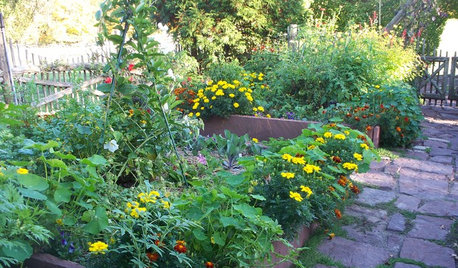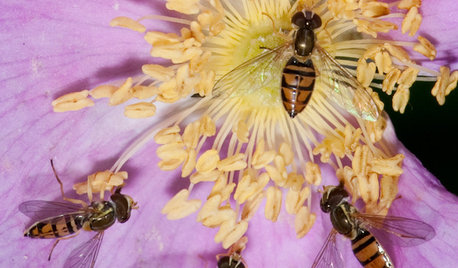organic pest control
cbow
12 years ago
Related Stories

GARDENING GUIDESOrganic Matters: Thwart Insect Pests With Trap Crops
Add a few sacrificial plants to your garden to lure insects away from the harvest
Full Story
STUDIOS AND WORKSHOPSGet Your Craft Paper Under Control
A stash here, a roll there, and you can never find it when you need it? These tips for craft paper storage and organization can help
Full Story
KIDS’ SPACESControl Kid Stuff the Sane Way — Artwork-Managing Strategies
Enlist your child's help in managing creative piles to set the stage for good habits and make organizing easier on you
Full Story
INSPIRING GARDENSFrom Concrete Lot to Gracious Organic Garden in Seattle
Plants, pests and even weeds have a place in this landscape, which offers an edible bounty and a feast for the eyes
Full Story
HOME TECHSwitch On the Phone-Controlled Home
Lock your front door from afar, let your thermostat set itself and more when you use your phone as a control device
Full Story
HOME TECHNew TV Remote Controls Promise to Do More — Without the Struggle
Dim your lights, set up user profiles and discover a remote you can't lose. Welcome to the latest and greatest way to change the channel
Full Story
ORGANIZINGOrganizing Secrets: It’s the Little Things
Get these 8 small areas under control for a major boost in overall tidiness at home
Full Story
GARDENING GUIDESTexas Gardener: What to Do in July
Beat the heat with sun-loving blooms, pest control, good lawn care and sun protection. Pick up the pace for planting and planning
Full Story
GARDENING GUIDESThis Fly Is One of the Most Beneficial Insects Around
Meet the syrphid fly, a colorful pollinator that also beats chemicals for controlling aphids and other garden pests
Full Story
GARDENING GUIDESHow to Switch to an Organic Landscape Plan
Ditch the chemicals for a naturally beautiful lawn and garden, using living fertilizers and other nontoxic treatments
Full StoryMore Discussions






nc_crn
bi11me
Related Professionals
Elwood Landscape Architects & Landscape Designers · Brooklyn Center Landscape Architects & Landscape Designers · Maple Valley Landscape Contractors · Bridgeport Landscape Contractors · Harrisburg Landscape Contractors · Lemoore Landscape Contractors · Mashpee Landscape Contractors · North Richland Hills Landscape Contractors · Pahrump Landscape Contractors · Stallings Landscape Contractors · West Chicago Landscape Contractors · Oxon Hill Landscape Contractors · Oceanside Driveway Installation & Maintenance · Grand Rapids Driveway Installation & Maintenance · Round Lake Beach Driveway Installation & Maintenancedigdirt2
rathersmallbunny
spogarden
susan2010
veeta
nc_crn